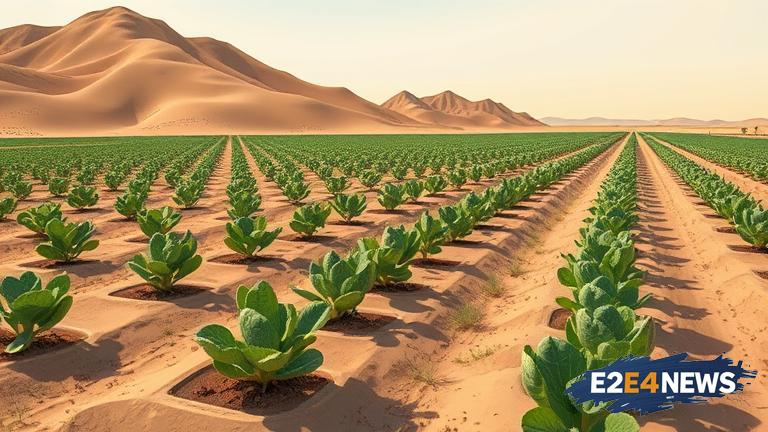Israel, a country known for its innovative approach to agriculture, has been at the forefront of developing and implementing advanced desert farming techniques. With a strong focus on sustainability and water conservation, Israeli farmers have been able to increase crop yields and improve the overall efficiency of their farming practices. One of the key technologies being used is precision irrigation, which allows farmers to deliver exactly the right amount of water to their crops, reducing waste and minimizing the environmental impact. Additionally, Israeli farmers are utilizing advanced hydroponic systems, which enable them to grow a wide range of crops in controlled environments, using minimal water and land. These innovative methods have not only improved crop yields but also enabled farmers to grow a diverse range of crops, including fruits, vegetables, and flowers. The use of drones and satellite imaging has also become increasingly popular, allowing farmers to monitor their crops and detect any potential issues before they become major problems. Furthermore, Israeli researchers have been working on developing new, drought-resistant crop varieties, which are better suited to the country’s arid climate. These advancements have not only benefited Israeli farmers but also have the potential to be implemented in other countries facing similar challenges. The Israeli government has also been actively supporting the development of these technologies, providing funding and resources to farmers and researchers. As a result, Israel has become a leader in the field of desert farming, with many countries looking to the country for guidance and expertise. The impact of these innovative techniques extends beyond the agricultural sector, with the potential to improve food security, reduce poverty, and promote sustainable development. In addition to the economic benefits, these technologies also have the potential to improve the environment, by reducing water waste and promoting more efficient use of resources. The use of renewable energy sources, such as solar and wind power, is also becoming increasingly popular in Israeli agriculture, reducing the sector’s reliance on fossil fuels and minimizing its carbon footprint. Overall, Israel’s innovative approach to desert farming has the potential to make a significant impact, both locally and globally, and is an exciting example of how technology and innovation can be used to address some of the world’s most pressing challenges. With the global population projected to reach 9 billion by 2050, finding ways to increase food production while minimizing the environmental impact is becoming increasingly important. Israel’s desert farming techniques offer a promising solution to this challenge, and it is likely that we will see these methods being adopted in other countries in the coming years. The development of these technologies is also creating new opportunities for employment and economic growth, both in Israel and around the world. As the global demand for food continues to rise, the importance of innovative and sustainable agricultural practices will only continue to grow. Israel’s leadership in this field is a testament to the country’s commitment to innovation and sustainability, and its potential to make a positive impact on the world. The country’s expertise in desert farming has also led to the development of new industries and services, including consulting and training programs for farmers from other countries. These programs provide valuable knowledge and expertise, enabling farmers from around the world to learn from Israel’s experiences and implement similar techniques in their own countries. In conclusion, Israel’s innovative desert farming techniques are a shining example of how technology and innovation can be used to address some of the world’s most pressing challenges, and have the potential to make a significant impact on the global agricultural sector.
